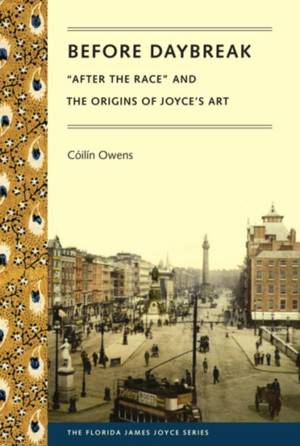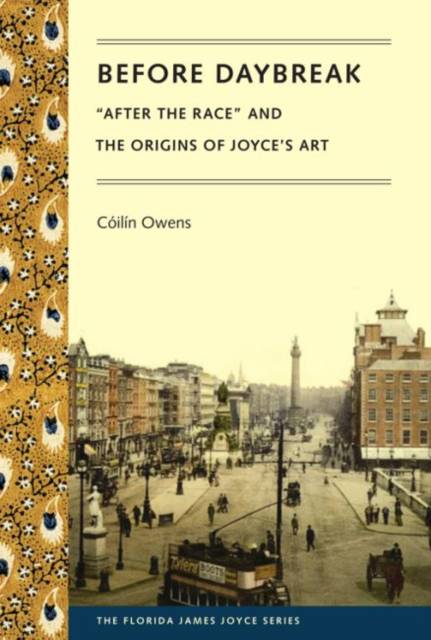
- Retrait gratuit dans votre magasin Club
- 7.000.000 titres dans notre catalogue
- Payer en toute sécurité
- Toujours un magasin près de chez vous
- Retrait gratuit dans votre magasin Club
- 7.000.0000 titres dans notre catalogue
- Payer en toute sécurité
- Toujours un magasin près de chez vous
Description
Joyce's "After the Race" is a seemingly simple tale, historically unloved by critics. Yet when magnified and dismantled, the story yields astounding political, philosophic, and moral intricacy.
In Before Daybreak, Cóilín Owens shows that "After the Race" is much more than a story about Dublin at the time of the 1903 Gordon Bennett Cup Race: in reality, it is a microcosm of some of the issues most central to Joycean scholarship.
These issues include large-scale historical concerns--in this case, radical nationalism and the centennial of Robert Emmet's rebellion. Owens also explains the temporary and local issues reflected in Joyce's language, organization, and silences. He traces Joyce's narrative technique to classical, French, and Irish traditions. Additionally, "After the Race" reflects Joyce's internal conflict between emotional allegiance to Christian orthodoxy and contemporary intellectual skepticism.
If the dawning of Joyce's singular power, range, subtlety, and learning can be identified in a seemingly elementary text like "After the Race," this study implicitly contends that any Dubliners story can be mined to reveal the intertextual richness, linguistic subtlety, parodic brilliance, and cultural poignancy of Joyce's art. Owens's meticulous work will stimulate readers to explore Joyce's stories with the same scrutiny in order to comprehend and relish how Joyce writes.
Spécifications
Parties prenantes
- Auteur(s) :
- Editeur:
Contenu
- Nombre de pages :
- 352
- Langue:
- Anglais
- Collection :
Caractéristiques
- EAN:
- 9780813042473
- Date de parution :
- 26-02-13
- Format:
- Livre relié
- Format numérique:
- Ongenaaid / garenloos gebonden
- Dimensions :
- 160 mm x 229 mm
- Poids :
- 589 g

Les avis
Nous publions uniquement les avis qui respectent les conditions requises. Consultez nos conditions pour les avis.






